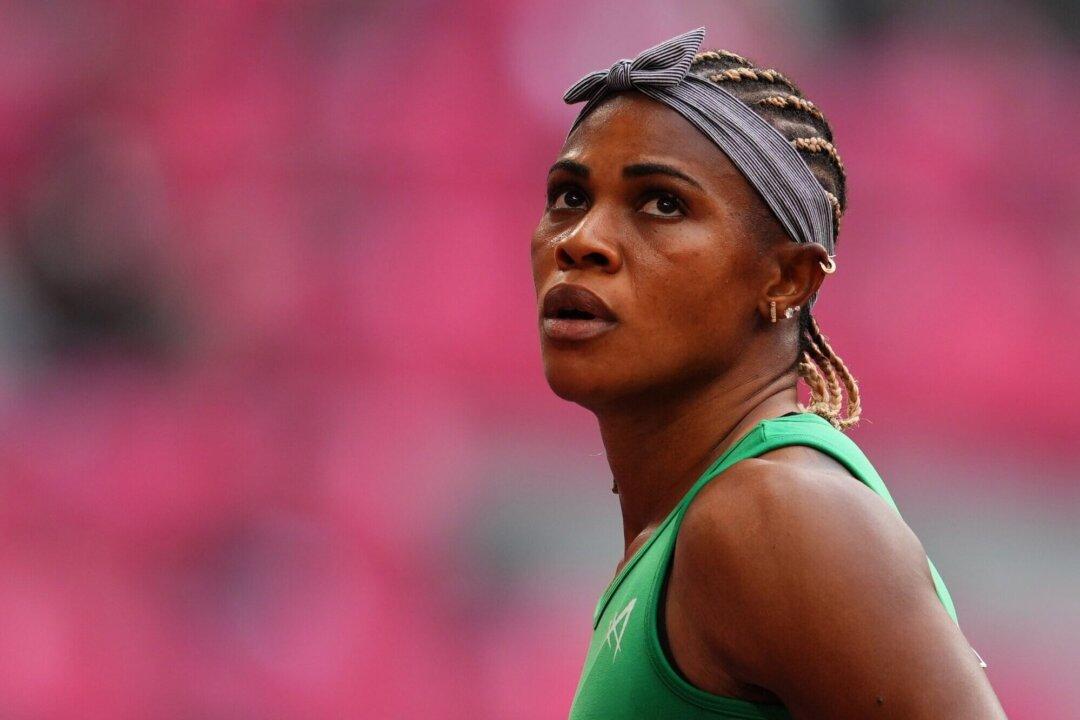Nigerian sprinter Blessing Okagbare has been banned for 10 years for doping in the lead-up to the Tokyo Olympics and refusing to cooperate with the investigation, the Athletics Integrity Unit (AIU) said on Friday, effectively ending her career.
Okagbare, who won silver in the long jump at the Beijing 2008 Olympic Games, was provisionally suspended last year after testing positive for multiple prohibited substances before the Tokyo Olympics and later hit with three separate anti-doping charges.





